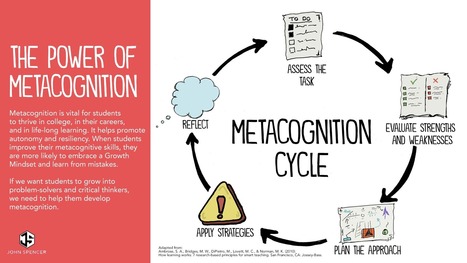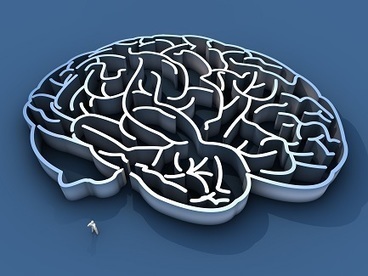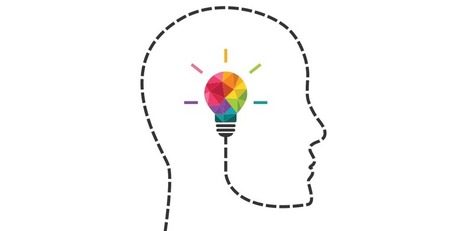 Your new post is loading...
 Your new post is loading...

|
Scooped by
John Evans
|
An important part of learning and teaching is the art of reflection. As teachers, we need to be reflective in our practice so that we can continue to grow, be prepared to meet our students’ needs, and evaluate our own skills and growth. It is important that we model this same practice for our students so that they can develop their own reflective practices and build skills of metacognition in preparation for their future. Metacognition enables students to reflect on who they are, what they know, what they want to know, and how they can get to that point. I’m not an expert but this is a topic that I’ve become more interested in so I started to look into multiple resources to learn more.

|
Scooped by
John Evans
|
I’ve often heard students tell me they studied for hours on a test only to fail. Why? It is not unusual for some students to review what they already know and skip more difficult tasks. Yet evidence exists that providing timely, effective feedback is particularly beneficial for struggling learners. It is this feedback that allows students to differentiate what they know from what they don’t—metacognition.

|
Scooped by
John Evans
|
f we want students to develop into critical thinking, lifelong learners, we need them to develop metacognitive skills. Metacognition is vital for helping students become self-directed learners (both self-managers and self-starters). It will help them navigate the complexities of a changing world and it will help them as they engage in creative work. In this blog post, we explore how to make that happen.

|
Scooped by
John Evans
|
Elevate students to a level of thinking beyond their current capabilities by developing metacognition through intentional methods in your classroom.
|
I’ve often heard students tell me they studied for hours on a test only to fail. Why? It is not unusual for some students to review what they already know and skip more difficult tasks. Yet evidence exists that providing timely, effective feedback is particularly beneficial for struggling learners. It is this feedback that allows students to differentiate what they know from what they don’t—metacognition.

|
Scooped by
John Evans
|
These days, new ideas about “best practice” in the classroom are published every day. It is an indication that educators are increasingly taking ownership of their own destiny, and with social media making the sharing of ideas so easy, teachers have constant instant access to new and exciting suggestions from around the world.
Though this is exciting, there is an associated danger. The ideas badged as “best practice” are, more often than not, untested in any reliable way. This means that teachers could be implementing practices that do not impact positively. Worse still, they could be having a negative impact on learning.
Perhaps rather than “best practice”, we need to consider “effective practice”. Thankfully, we now have access to a body of research that helps us know what sits in the area of effective practice: the work of the Education Endowment Foundation (EEF) is hugely accessible and allows teachers to see what works, and how much it costs.
Similarly, the work of John Hattie, from the University of Melbourne’s Graduate School of Education, helps us get to grips with what he terms “visible learning” – aspects of teaching that can be seen to makes a difference.
Both the EEF and Hattie cite the development of metacognition in our students as a highly effective approach to securing progress over time. Metacognition is not an instantly easy word to understand – people sometimes glaze over. But in my experience, once it is explained, people “get it", and “want it”. It is a powerful concept that can make a significant difference to our students.

|
Scooped by
John Evans
|
Teaching students basic knowledge about the brain’s potential can have a positive impact on their motivation, grit, and achievement. In particular, explicitly teaching them that learning changes the structure and function of their brains can be transformational in building a stronger belief in the value of working hard to master new material.
Teachers who explain these findings report that the knowledge has a positive effect on students’ perceptions of their abilities as well as on their expectations for success.
Metacognition. Termed by the American Psychologist John H. Flavell, in 1979, it’s a combination of two words that best describe its meaning; meta – beyond and cognition – thinking. Going by this conceptualization, simply put, metacognition implies beyond thinking, or thinking about the thinking process.
Components of Metacognition
Metacognition principally involves being aware of one’s current thinking skills, and developing the same to customize the process of learning. The three major components of this process, are:
Metacognitive knowledge - Knowledge and awareness of one’s own cognitive processes.
Metacognitive regulation – Regulation of learning existing cognitive knowledge through regulatory activities and exercises.
Metacognitive experience – Experiences relevant to ongoing attempts at regulation.
Via Jim Lerman, Karen E Smith
|
 Your new post is loading...
Your new post is loading...
 Your new post is loading...
Your new post is loading...

















